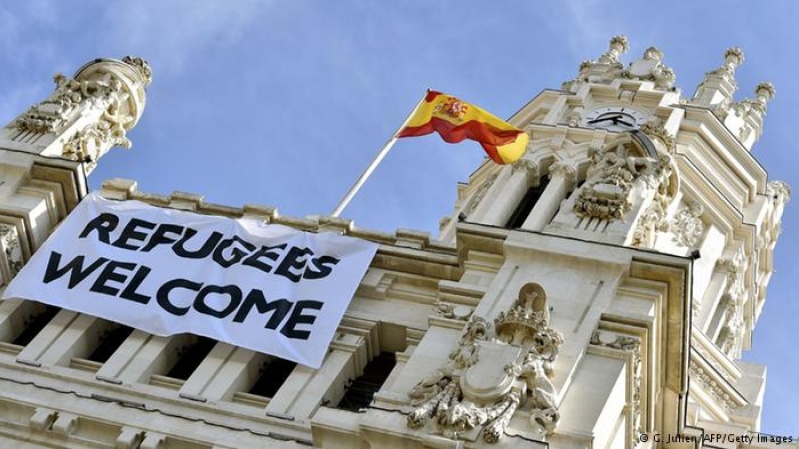
While some in Spain fear the wave of Syrian refugees will bring the influence of radical Islam into the country, one Spanish ministry is eagerly welcoming them, revealing that those fleeing war and poverty often embrace Christianity with open arms.
In September, European Union (EU) leaders assigned 15,000 mainly Syrian refugees to Spain, with many more to follow in subsequent years, as the four-year Syrian war and the rise of ISIS have forced 10.6 million people from home, according to CNN.
While the refugees have been met with fear and suspicion by many in Spain, one ministry director, identified only as "Antonio" for security reasons, sees the EU plan as an unprecedented opportunity to further the Gospel, according to a new report from Christian Aid Mission.
"Our experience is that they come to the Lord fast," said the director, who has ministered to Syrian refugees for several years. "They say, 'We are here because Islam [jihadists such as the Islamic State] put us here and broke our family and broke our country,' and they open very fast. There are house churches among Syrians."
The Christian Aid report notes that fears surrounding Muslim integration into Spain are not unfounded, as the country for decades has seen Muslim immigrants from Morocco grow into a religious target group for competing radical Islamists from abroad, heightening Catholic-Muslim tensions.
Spain's National Intelligence Center (CNI) found that Islamic-ruled countries from the Middle East and North Africa have also channeled millions of dollars to radical Islamists in efforts to compete for Spain's nearly 1.9 million Muslims.
Additionally, Salafism, an Islamic extremist movement based on restoring the original traditions of Islam, has increased its presence in Spain. Thus, as the Syrians and other refugees arrive, Spain's Islamic centers also will be eager to welcome them, the ministry director said.
"It's evident in every place - in every place they go, they build a big mosque with a big minaret to say, 'We are here,'" he said. "Saudi Arabians are sending imams and money. They're buying many things. They're sending missionaries. They pay for a place, and they take control of the Muslims of the area."
Because of this, Antonio is urging churches to be on the frontlines greeting refugees, as those who make the first contact with the arriving Syrians will have the most impact.
"We're encouraging the church to be the first to contact them and have an impact with them with the gospel," he said. "I am beginning to work with 100 Syrian families just in Jerez, but I'm working with other believers to do the same. They say, 'I don't know how to work with Syrians.' I said, 'It doesn't matter - you receive them, and I'm ready to work all year to train you so you can work with the Syrians.'"
Currently, some volunteers are working to help Antonio in the outreach in Jerez, and the same number of volunteers work in each of the other Spanish cities where his ministry has planted some of its nearly 70 house churches, including Seville, Malaga, Jaen and Cordoba. In the three churches that he pastors, four or five people at each church receive Christ each week.
His ministry team establishes relationships with people by identifying their needs, such as distributing food, visiting people in hospitals and helping with other medical needs. Eventually, the ministry also hopes to renovate a building to start a Christian school for U.S. families at nearby Rota military base. Until then, Antonio primarily seeks funds to purchase the Word of God in Arabic, Spanish and English, and the transportation to spread the Gospel to yet unreached people - before radical Islam has the chance to reach them.
"In the past, the missionaries didn't do a good job in southern Spain; they began to fight against Catholicism," Antonio said. "In the Bible, I don't see Paul fighting against other religions. I only share the gospel. I share about Jesus, His love, how it changed my life, how he impacted my family and relatives. When you talk about this, they change."
To learn how you can support Christian Aid Mission, click here.






